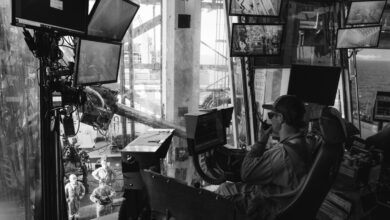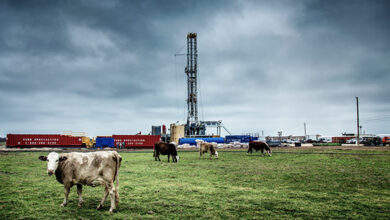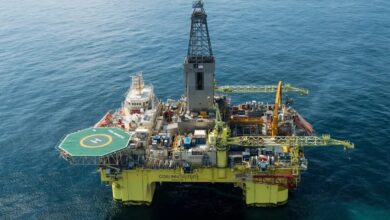Shell Malaysia chairman: Well integrity is new front in industry HSE

Personal safety has been on the forefront of the industry’s HSE efforts for many years, but Mohammed Anuar Taib, chairman of Shell Malaysia, believes a new front is emerging – in well integrity.
Although most people might know the exact number of days since the last lost-time incident in their area, Mr Taib contends that not many would know the number of wells in their area to the nearest 10. “We worked on this in Shell for about three years already, and only recently we could say how many wells there are in Shell and how many of them were of good quality and good integrity,” he said.
He recalled a blowout in the Middle East that happened during well intervention. To attempt to kill the well, the company located five diagrams for the well from within the company. “Each one claimed they were current and none of them were consistent,” he said.
As industry heads toward an increasing trend where wells and wellheads are subsea and hard to reach, well integrity will become more important than ever. “At Shell, we’re trying to institutionalize well integrity into the framework and mindset of well engineers,” Mr Taib said, adding that the process has to start by looking at well design. Factors such as corrosion and how often intervention will be needed are frequently not taken into account now but need to always be considered as part of the well design, he said.
Each company should also keep an inventory of wells showing the location of each well, its critical components, and what preventive and corrective maintenance have been done. “We must treat wells as if it’s a facility,” he said.
“I was actually embarrassed about three years ago when we first started. We only knew roughly 60% to 70% of our wells in Asia Pacific. To move to 98% now has been absolutely hard work. Quite a few of those wells, especially the land wells, we couldn’t even reach it, we didn’t know where it was,” Mr Taib recalled.
Reviewing the health of each well requires a systematic process, and Mr Taib cautioned the industry on being lulled into complacence by wells that have so-called “green lights.” “Sometimes you can have a green light on a well, and you think, yep, now we can relax. Sometimes the green is a lot more deceiving than the red. I would actually rather have red than have green,” he said.
He also questioned whether Southeast Asia should continue to self-regulate or whether formal regulations are needed. With many stakeholders getting increasingly critical and suspicious of industry, perhaps industry needs to work together to put forward a proposal for well integrity standards or regulations, he suggested.
“One of the biggest challenges I found with well integrity is that it’s not sexy. Nobody likes it. It’s messy. The biggest problem that I found in the past three or four years in pushing for well integrity is actually having to change the mindset of the wells community,” he said. Most of the time, we just want to drill a well, complete it, test it and move on to the next one. Yet we must keep in mind that the well must be looked after for the next 15, 20 years, Mr Taib said.
In the behavioral staircase of well integrity, Mr Taib urges every company to try to move away from the bottom pathological stage, where the attitude is, “Who cares about well integrity as long as we don’t have any incidents?”
In the reactive stage, problems are dealt with and fixed only after they’ve happened. In the calculative stage, there is a system in place to measure well integrity; and in the proactive stage, we know when we get close to the margin of the performance standard and corrective action is defined. At the top is the generative stage, where well integrity is the focus and it’s the way we do business.
Can the industry afford to live in the pathological stage? Mr Taib asked. The answer, he believes, is no, and we must figure out what it will take to move up that pyramid, ultimately going to the generative stage. “If there’s an incident, it’s not only the parties that are directly at fault who are penalized; usually the whole industry is also penalized,” he said.




